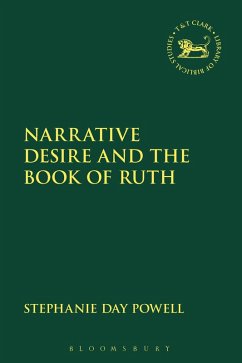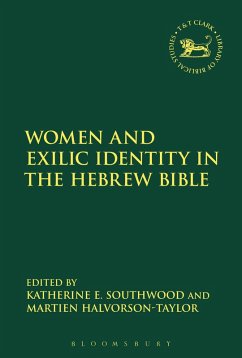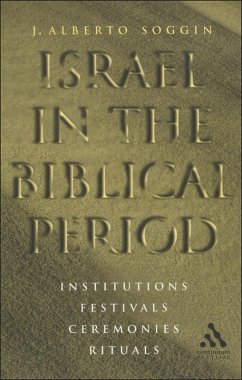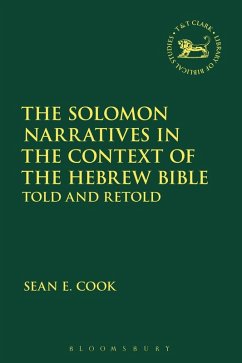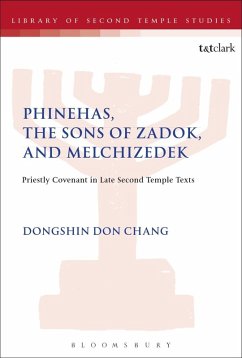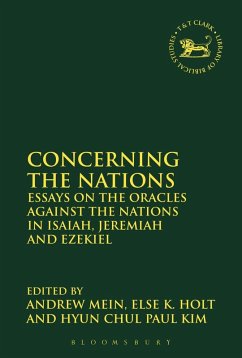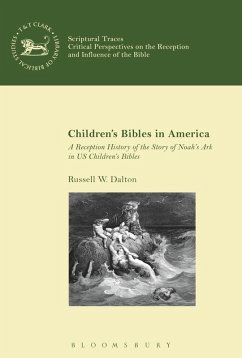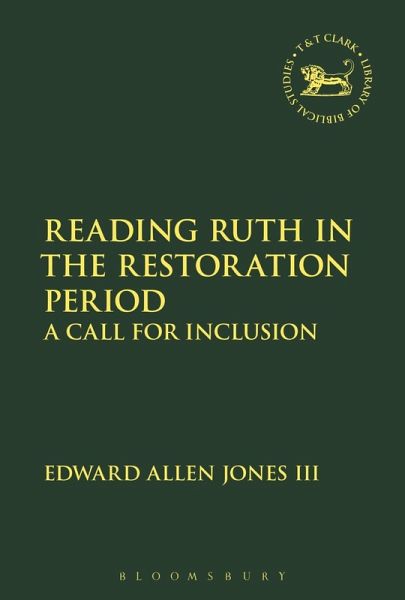
Reading Ruth in the Restoration Period (eBook, PDF)
A Call for Inclusion

PAYBACK Punkte
15 °P sammeln!
Most scholars of the Hebrew Bible/Old Testament recognize Ruth's simplicity and beauty, yet there has been little consensus in critical scholarship related to the book's origin and purpose. Opinions on the text's date range from the early monarchic period down to the Post-Exilic period, and interpreters argue over whether the narrative served to whitewash David's lineage, or if it held Ruth out as a positive example of Gentile inclusion in the Judean community. With an eclectic approach drawing on traditional exegesis, analysis of inner-biblical allusions, comparisons of legal and linguistic d...
Most scholars of the Hebrew Bible/Old Testament recognize Ruth's simplicity and beauty, yet there has been little consensus in critical scholarship related to the book's origin and purpose. Opinions on the text's date range from the early monarchic period down to the Post-Exilic period, and interpreters argue over whether the narrative served to whitewash David's lineage, or if it held Ruth out as a positive example of Gentile inclusion in the Judean community. With an eclectic approach drawing on traditional exegesis, analysis of inner-biblical allusions, comparisons of legal and linguistic data, and modern refugee research, Edward Allen Jones III argues that Ruth is, indeed, best understood as a call for an inclusive attitude toward any Jew or Gentile who desired to join the Judean community in the early Post-Exilic period. Within the narrative's world, only Boaz welcomes Ruth into the Bethlehemite community, yet the text's re-use of other biblical narratives makes it clear that Ruth stands on par with Israel's great matriarchs. Though certain segments of the Judean community sought to purify their nation by expelling foreign elements in the Restoration period, Yhwh's loving-kindness in Ruth's life demonstrates his willingness to use any person to build up his people.




